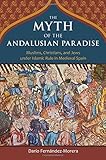While Russian political tampering concerns dominate news
headlines, one area of concern that has been overlooked for many decades is
Germany’s mounting influential power over media, academia, and/or book
publishing, something which Dr.
Robert E. Kaplan of Jerusalem
calls “soft power” in his illuminating book titled The
Soros Connection, where he demonstrates the very real possibility that
George Soros is a political and economic wrecking ball working as a foreign
agent for the German state. Dr. Kaplan received his Ph.D. in history from
Cornell University. He was heavily influenced by historian Edward
Whiting Fox.
Around
2000, Kaplan began noticing that Germany and German based trusts, foundations,
and publishers, etc. seemed to have developed a habit of sending
grants to Holocaust research
projects. While some of this was most certainly done to help ease the problem
of Holocaust guilt, there was too much altruism to be credible. The more Kaplan
investigated, the more skeptical he became of Germany’s philanthropy -- all
with a seemingly limitless supply of money. Kaplan then noticed that similar
German funding and/or gifting had been a longstanding practice for well over
100 years, including strong ties to yellow
journalism together with the
meteoric rise of both the Hearst and Newhouse media empires in New York.
Further, Kaplan submits evidence of strong German financial connections to the
Rockefellers, Carnegies, J.P. Morgan, and the Ford Foundation. All this
strongly suggested to Kaplan a coordinated effort of German government policy.
Worse, German media has a very poor historical record relative to the freedom
of the press precisely because of its close ties to the state going all the way
back to the beginning of the Second Reich in 1871, when Otto von Bismarck (1815-1898) exerted authoritarian
control over what was printed. While the interwar years was concerned with
whitewashing German war guilt from World War I, the aftermath of World War II
was preoccupied with saving face following the terrors of the Holocaust.
In
an article titled, “The German Problem,” the late syndicated columnistWilliam
Safire wrote, “I bridle at German book publishing hegemony. Few Americans
realize that two German Gesellschaften are gaining stranglehold on US books.”
Thus, the German media influences Kaplan writes about is also tied up with book
publishing as well. Holtzbrinck Publishers and Bertelsmann control most of the big name
publishing houses and a sizable market share of all the books produced in the
United States. Bertelsmann is a media colossus that has been described as a “state
within a state.” Bertelsmann played no small
role in the dramatic rise of
both Bill
Clinton and Barack
Obama.
Kaplan
writes that in the past 20-25 years, both Bertelsmann and Holztzbrinck have
done an admirable job of publishing any number of different books that share
Holocaustic blame and guilt with other players and participants in different
countries in order to help launder Germany’s history. Both Bertelsmann and
Holtzbrinck also have substantial Nazi
pedigrees in their
past. Bertelsmann is controlled by the Mohn family, who had a strong pro-Nazi history in the 1930s and 40s. Today the Mohns
are active environmentalists who belong to the ultra-green Club of Rome. Scientific American and Nature magazines are owned by Holtzbrinck.
Kaplan
then goes on to show how George Soros parrots virtually the same agenda that
Germany and its media allies have been peddling for years. In particular, Soros
mimicked Germany’s desire to break up Yugoslavia in the 1990s. Initially, only
Germany wanted to break up the Balkans. President Clinton followed suit. The
U.S. and Europe thus sided with the Albanian Muslims in both Bosnia and Kosovo.
While Milosevich was no saint, the Bosnian/Albanian Muslims were/are not
much better. During World War II, they fought
on the same side as the SS
and were Nazi
collaborators. Kaplan is also convinced that the Balkanization of
Yugoslavia was the first
salvo of what is today called
the Arab Spring, in order to help resurrect some form of the old Ottoman
Empire. Germany and Turkey were allies in World War I. After Serbia was bombed
in the Bosnian War, the USA then lost Russia, which is at the very heart of the
crisis now fomenting in Ukraine. Is it not possible that much of the vitriol
over Russia right now in the media is being largely promoted by German
concerns?
Soros was infamously known for
being the man who broke the bank of England in the early 1990s. According to
Kaplan, Soros had inside information from the German government as he used the
mark to make a killing involvong deliberate currency manipulation that hit
England particularly hard. Soros has since used that incredible haul to make
even more money, usually at the hefty expense of other nations. He then uses
his profits to heavily influence and manipulate politics worldwide,
particularly in America.
The first time we hear of Soros was in 1944 Budapest,
Hungary. Thanks to the protective efforts of his father, Tivadar, Soros worked
with a Nazi godfather to help locate and shake down fellow Jews of their
belongings before they were shipped off to Auschwitz. Soros alleges his father
put him in that position to shield him from the Nazis, but it becomes very
difficult not to presume that Tivadar had strong connections with the Judenrat in Budapest. The Judenratwere
Jewish councils that the Nazis set up all over Europe to force them to do their
dirty work for them. The Judenrat were placed in charge of the ghettos
that housed the Jews in horrific conditions. While many of the Judenrat tried to serve the best they could
with what was forced upon them, some actually enjoyed the virtual godlike
powers that were granted. How Soros’s father related to all this is unknown.
What is known is that Soros himself, though a Jew and a free man, constantly works
against Zionism and
pro-Jewish policies today.
According
to Pamela Geller, there is a dossier on Soros that alleges previous strong
connections between Soros and Francois Genoud (1915-1996), the Swiss Nazi banker who
helped bankroll the Third Reich and was later flush with Holocaust cash after
the war. Genoud used Nazi money to lay the foundation
stones for Islamic terrorism
during the early 1970s. Many also believe Genoud was the very founder of the
international Al Taqwa Bank in Switzerland that was directed by a neo-Nazi
Islamicist by the name of Ahmad Huber, originally Albert Huber, who was a Swiss
convert to Islam. This bank supposedly helped sponsor Osama bin Laden and was
shut down after the 9/11 terrorist attacks for aiding and abetting both Al
Qaeda and Hamas. Italian security dubbed it, “The Bank of the Muslim Brotherhood.”
Many today complain of the infiltration
of the Muslim Brotherhood into
various branches of the U.S. government.
While
more than a few will look at Dr. Robert Kaplan’s assessment of Soros with incredulity, it is
highly unlikely that even a rich, powerful man like Soros could have such a
dominating influence over world affairs without state sponsorship of his
activities. Even Bill O’Reilly once called Soros, “Blofeld.” In the original
Ian Fleming James Bond series, Blofeld was in charge of an underground, but
very rich and powerful semi-fascist terrorist organization of sorts called
Spectre.
Mark Musser is a
part-time pastor, author, missionary, and a farmer who lives in Olympia,
Washington. He is a contributing writer for the Cornwall Alliance. His book Nazi
Oaks provides a sobering history lesson on the philosophical
foundations of the early German green movement, which was absorbed by National
Socialism in the 1930s that proved to be a powerful undercurrent during the
holocaust. Mark is also the author of Wrath
or Rest which is a commentary on the
warning passages found in the epistle to the Hebrews.







